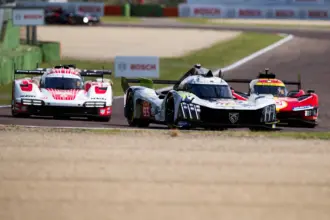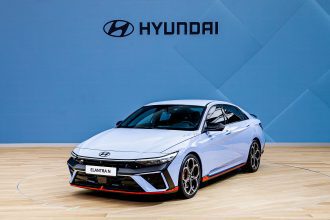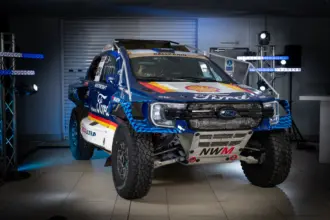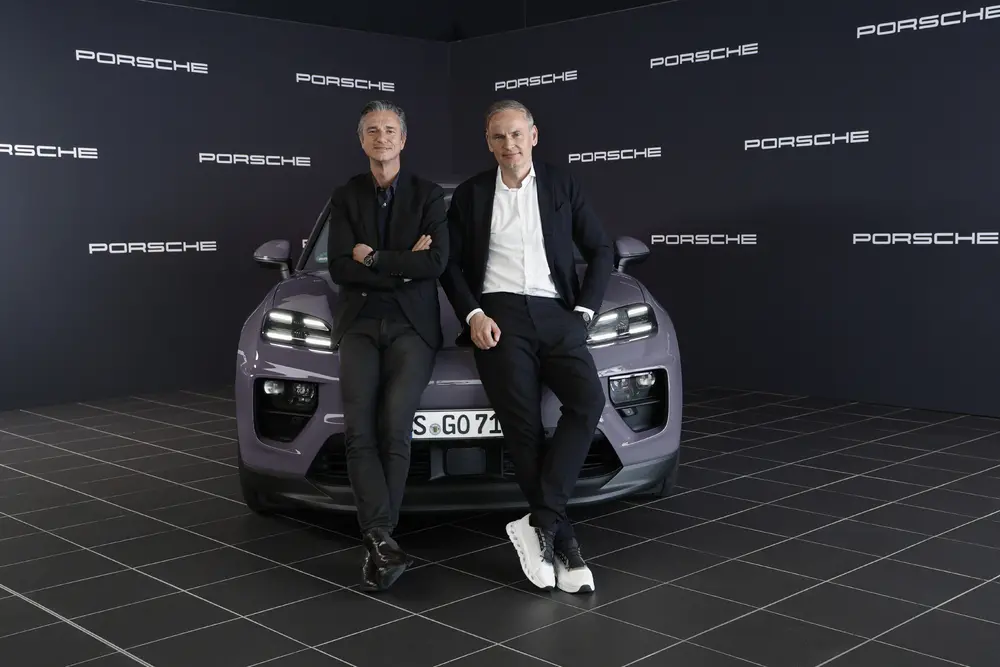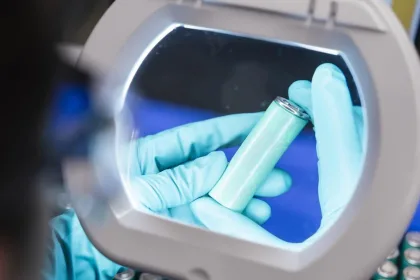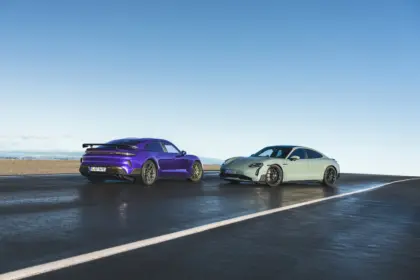- Porsche posts successful 2023 financial year: Group sales revenue increases to 40.5 billion euros and Group operating profit to 7.3 billion euros.
- Four new model launches in 2024 will lay the groundwork for a successful future.
- CEO Oliver Blume: “The Porsche team can be proud of their performance. We have had a strong financial year. 2024 is going to be a year of product launches for Porsche – more so than any year in our history. We will be introducing a variety of exhilarating sports cars to the road, they will delight our customers around the world. This will put the wind at our back for years to come.”
- CFO Lutz Meschke: “Porsche proved in 2023 that it is resilient, highly profitable and financially robust even in volatile times. And we’re benefitting from an even better-balanced sales structure than in the past. On this basis, we’re laying the groundwork in 2024 for a flying start in 2025.”
Porsche AG closed out a very successful 2023 financial year and is planning the biggest year of product launches in the company’s history in 2024. With four new launches in the Panamera, Macan, Taycan and 911 model lines, the sports car manufacturer will continue to pick up speed in 2025. “We have had a strong financial year,” says Chairman of the Executive Board Oliver Blume. “2024 is going to be a year of product launches for Porsche – more so than any year in our history. We will be introducing a variety of exhilarating sports cars to the road, they will delight our customers around the world. This will put the wind at our back for years to come.”
Group sale revenue totaled 40.5 billion euros in 2023. This marks a 7.7 per cent increase (previous year: 37.6 billion euros). Group operating profit rose by 7.6 per cent to 7.3 billion euros (previous year: 6.8 billion euros). The Group operating return on sales remained stable at 18.0 per cent – despite disruptions to global supply chains, significant inflation and exceptionally high investments in digitalization, product and innovation portfolios, and the brand experience. “Our strong results are due to the high demand for our attractive products and our strict cost discipline,” says Lutz Meschke, Deputy Chairman of the Executive Board and Board Member for Finance and IT. Automotive net cash flow in the 2023 financial year amounted to 4.0 billion euros (previous year: 3.9 billion euros).
Porsche is highly profitable and has met its ambitious forecasts
Lutz Meschke: “Porsche proved in 2023 that we are resilient, highly profitable and financially robust even in volatile times. And we benefit from an even better-balanced sales structure than in the past,” he says. “On this basis, we’re laying the groundwork in 2024 for a flying start in 2025. Our focus remains on the sustainable success of the company. Our customers and employees, the company and our shareholders all benefit.”
In the 2023 fiscal year, the earnings per ordinary share were 5.66 euros and the earnings per preferred share were 5.67 euros. In line with the current dividend policy, the Executive Board and Supervisory Board of the Annual General Meeting will propose a dividend payment of 2.1 billion euros for the 2023 fiscal year. This amounts to more than 40 per cent of the Group’s net income after tax and 2.30 euros per ordinary share and 2.31 euros per preferred share. In the medium term, Porsche plans to distribute 50 per cent of the Group’s net income after tax to shareholders.
Four model launches make 2024 a Porsche product year
“The Porsche team can be proud of their performance in 2023. Despite all the challenges, our customers have been thrilled with our exciting products, across all model lines,” continues Blume. In 2023, deliveries to customers rose by 3.3 per cent to 320,221 vehicles. The results in the various sales regions were even more balanced than in the previous year. On this stable footing, Porsche aims to bring no fewer than four new or considerably revised model lines to the market in this year of product launches.
It begins with the third generation of the Panamera. The luxury sedan emphasizes its sporting character with even more powerful drivetrains. A fundamentally modernized control concept and numerous innovative technologies further sharpen its profile. These include the new Porsche Active Ride suspension. It combines a significantly higher level of comfort with the sporty driving characteristics for which Porsche is known.
The next generation of the all-electric Taycan sports car goes on sale in the spring. The new version has more power, a longer range, accelerates faster and charges in less time with greater stability. The Taycan Turbo GT also celebrated its world premiere yesterday. With it, Porsche is transferring its GT tradition into the electric age for the first time – with a top speed of 305 km/h, up to 815 kW (1108 PS) and a 0 to 100 km/h time of 2.2 seconds.
In the second half of the year, the second generation of the Porsche Macan will join the line-up in all-electric form. It will be manufactured in Leipzig alongside its ICE sister model, which will continue to be offered. Customer demand has developed very positively since the order books opened.
The product upgrade of the 911 is planned for early summer – including a high-performance hybrid drive. Oliver Blume: “Once again we are deploying technology in series-production models that we have derived from the world of motorsport. And our customers can look forward to further technological innovations along those same lines.”
The revamped Cayenne hit the market at the end of 2023. The third generation of the luxury SUV has been extensively upgraded with regard to its powertrain, chassis, design, equipment and control concept.
Consistent long-term strategy
With their wide range of customization options, the new models lay the groundwork for Porsche to further advance its strategy of value-creating growth. Porsche is committed to a combination of three types of powertrains: efficient ICEs, exciting plug-in hybrids and innovative all-electric models. Part of the strategy is retaining the greatest possible flexibility in the production of the different types of powertrains. At the same time, Porsche is investing in the brand and its ecosystem in order to inspire customers with exceptional experiences and services. In transforming the company, Porsche is investing extensively in innovation, digitalization and sustainability – and in the people who shape Porsche with their daily work.
With a view to the transformation in society and the long-term trends in customer demand, Porsche is driving forward the ramp-up of e-mobility with the same dedication as ever. The all-electric 718 is planned for the middle of the decade. It will be followed by the all-electric Cayenne. Porsche is also planning to expand its product portfolio upwards – with an all-electric SUV, sportily positioned above the Cayenne. This completely new car concept is based on the SSP Sport platform developed by Porsche and is to be built in Leipzig. Its powerful performance, automated driving functions and a completely new interior experience are intended to tap into new customer potential – particularly in the US and China.
Sajjad Khan – new Board Member for Car IT
In November 2023, Sajjad Khan joined the Executive Board of Porsche AG. He is responsible for the newly created Car IT unit of the Executive Board, which encompasses the topics of connectivity and infotainment. “In Sajjad, we have gained a recognized expert in the field,” says Blume. “He brings a lot of experience to the table and will continuously advance our Car IT unit along with his team.” At the Porsche Development Centre in Weissach, Khan works closely with Michael Steiner, Member of the Executive Board for Research and Development.
In the first quarter of 2024, Porsche has invested massively in digital and software partnerships. This includes the full takeover of the management and IT consultancy MHP and an investment in Applied Intuition. The Silicon-Valley-based company will further strengthen Porsche’s expertise in Car-IT and customer experience. A development partnership has been started with the Mountain View-based company.
Sustainability remains the focus
Porsche is also sticking to its ambitious sustainability targets. In 2030, Porsche has the ambition to deliver more than 80 per cent of new vehicles fully electrified – depending on the demand of our customers and the development of electromobility in the respective regions of the world. Complementary, Porsche also focuses on eFuels. Renewable synthetic fuels allow combustion engines to operate potentially nearly carbon neutral. Porsche also thinks about the existing fleet. There are about 1.3 billion vehicles with combustion engines in the world. Many of them will probably still be used in 30 years or more. Together with partners, Porsche started the first commercial eFuels plant in Chile. With this pilot plant, Porsche and its partners show how the production of eFuels can work on an industrial scale. When added to fuel, eFuels can reduce fossil CO2 emissions.
Porsche also aims to use more environmentally friendly materials in its new cars – for example, in the interior of the all-electric Macan. The production of the new Macan in Leipzig is net carbon neutral. The plant in Leipzig is powered entirely by green electricity and covers its heating requirements proportionately with biomethane and biomass. Porsche supports the expansion of renewable energies to cover the electricity demand that models predict the all-electric Macan fleet is expected to require.
Porsche expects a Group operating return on sales of 15 to 17 per cent
With the comprehensive renewal of its product range in 2024, the global framework conditions, higher depreciations on capitalized development costs and the continued investments in the brand and the Porsche ecosystem, Porsche AG expects a Group operating return on sales in the range of 15 to 17 per cent for the full year 2024. This forecast includes assumed sales revenues ranging from 40 to 42 billion euros. “In the medium term, we are sticking to our forecast of an operating return on sales of around 17 to 19 percent,” continues Meschke. “And, in the long run, we are aiming for a Group operating return on sales of more than 20 per cent.”
With a view to achieving its long-term return target, Porsche is pushing ahead with its Road to 20 program. “Here, too, we are putting a lot of money into developing new sources of revenue,” says Meschke. “The first projects of the Road to 20 program will be particularly exclusive offers and services with which we want to exceed our customers’ expectations. We are currently developing very exciting products and services.”
At the end of 2023, the Porsche Group had 42,140 employees. This equates to an increase of 7.6 per cent. Particularly in the areas of development and IT, Porsche hired a number of people in order to further strengthen its technical and software expertise.
| Porsche AG Group | FY 2023 | FY 2022 | Change |
|---|---|---|---|
| Deliveries | 320,221 | 309,884 | +3.3% |
| Sales revenue | €40,530 million | €37,637 million | +7.7% |
| Operating profit | €7,284 million | €6,772 million | +7.6% |
| Operating return on sales | 18.0% | 18.0% | |
| Automotive net cash flow | €3,973 million | €3,866 million | +2.8% |

